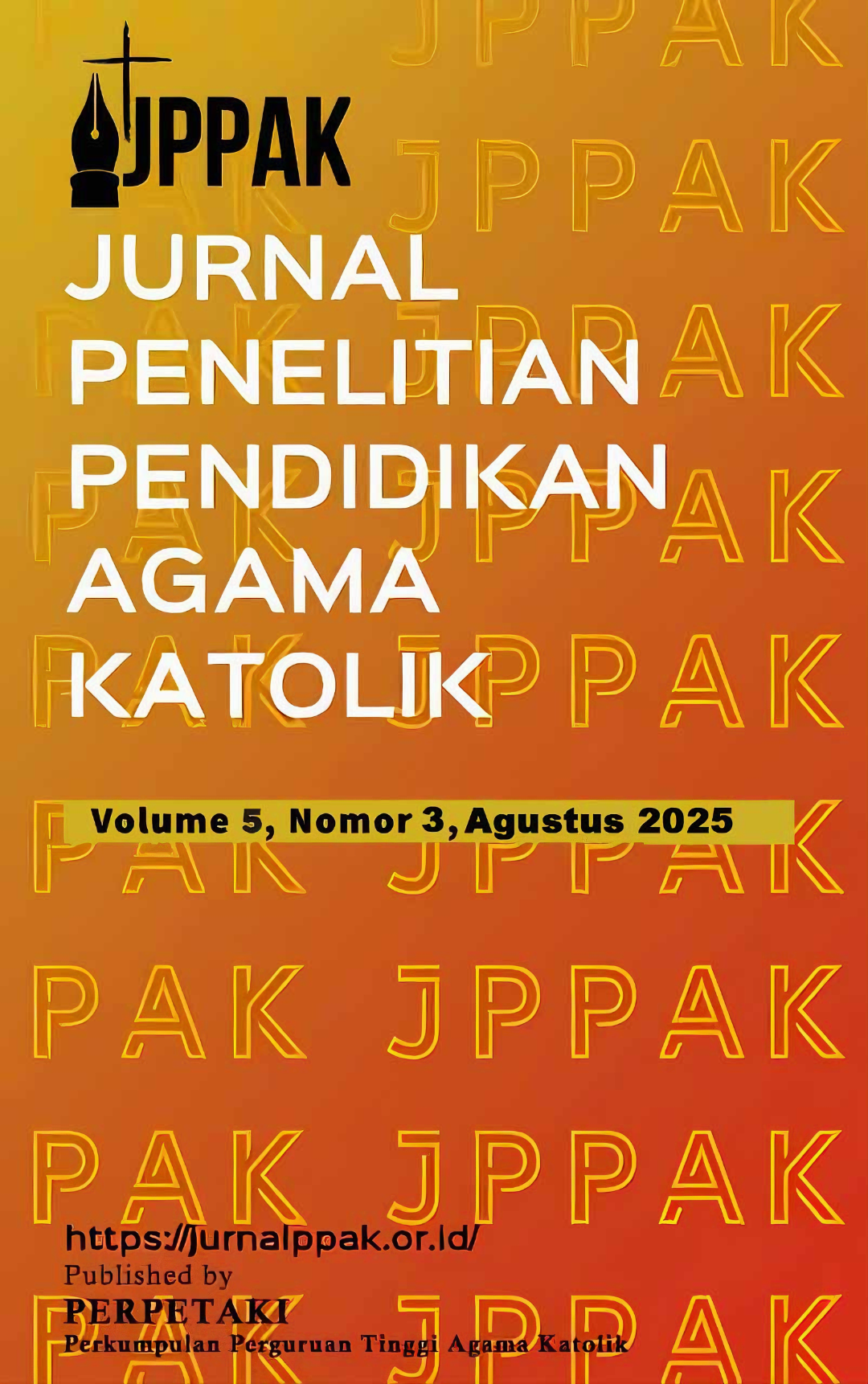Hukum Kasih Menurut Paulus Dalam Rom 12:9-21 Dan Gemanya Dalam Diskursus Kosmopolitanisme
DOI:
https://doi.org/10.52110/jppak.v5i3.262Keywords:
Law; Love; PauL; Rom 12:9-21; CosmopolitanismAbstract
The background of this article is the awareness of the importance of the law of love as a special language of religion (Christianity) for universal human civilization. The author realizes that conventional legal languages, both civil and moral, are not enough to provide a solid normative basis for the transnational cohesion project fought for in cosmopolitanism. The Christian law of love written by Paul in the text of Romans 12:9-21 can be an alternative answer amidst the flow of cosmopolitanism's search for a religious legal language in supporting world peace. The method used is library research with a comparative descriptive analysis approach. On the one hand, there is a description of the law of love from Paul's perspective, and on the other hand, there is a comparison of ideas with cosmopolitanism that is developing today. So this article aims to describe the law of love according to Paul in the text of Romans 12:9-21 and its theoretical and practical relevance in the discourse of cosmopolitanism. The expected result is a new perspective on cosmopolitanism based on the law of love formulated by Paul in the text of Romans 12:9-13.
Downloads
##submission.downloads##
Submitted
Accepted
Published
Versions
- 2025-09-25 (4)
- 2025-08-21 (2)
- 2025-08-16 (1)
How to Cite
Issue
Section
License
Copyright (c) 2025 Siprianus Soleman Senda

This work is licensed under a Creative Commons Attribution-ShareAlike 4.0 International License.
Copyright Notice and Permissions
Jurnal Penelitian Pendidikan Agama Katolik offers immediate open access to all its content on the principle to make researches freely available to the public, especially to the scholars, to support greater global exchanges of knowledge. This journal encourages all scholarly authors to allow their research openly available, free access and without time restrictions.
All articles published Open Access will be immediately and permanently free for everyone to read and download. Under the CC BY-SA 4.0 license, authors retain ownership of the copyright for their article, however authors grant others permission to use the content of publications in Jurnal Penelitian Pendidikan Agama Katolik (JPPAK) in whole or in part provided that the original work is properly cited. Users (redistributors) of Jurnal Penelitian Pendidikan Agama Katolik (JPPAK) are required to cite the original source by including at least: the full title of the article, the author's or authors' full name(s), JPPAK as the initial source of publication, year of publication and volume number using a propriate citing method.
Copyright encompasses exclusive rights to reproduce and deliver the article in all form and media, including reprints, photographs, microfilms and any other similar reproductions, as well as translations. The reproduction of any part of this journal, its storage in databases and its transmission by any form or media, such as electronic, electrostatic and mechanical copies, photocopies, recordings, magnetic media is prohibited without consent of Jurnal Penelitian Pendidikan Agama Katolik (JPPAK).
Jurnal Penelitian Pendidikan Agama Katolik (JPPAK) is licensed under a Creative Commons Attribution Share-Alike 4.0 International. (CC BY-SA 4.0)
Authors who publish with Jurnal Penelitian Pendidikan Agama Katolik (JPPAK) agree to the following terms:
- Authors retain copyright and grant the journal right of first publication with the work simultaneously licensed under a Creative Commons Attribution Share-Alike 4.0 International (CC BY-SA 4.0) license that allows others to share the work with an acknowledgement of the work's authorship and initial publication in this journal.
- Authors are able to enter into separate, additional contractual arrangements for the non-exclusive distribution of the journal's published version of the work (e.g., post it to an institutional repository or publish it in a book), with an acknowledgement of its initial publication in this journal.
- Authors are permitted and encouraged to post their work online (e.g., in institutional repositories or on their website) after the publication on JPPAK, as long as it not published on other OJS for it will be treated as plagiarism by plagiarism checker apps. It can lead to productive exchanges, as well as earlier and greater citation of published work (See The Effect of Open Access).












